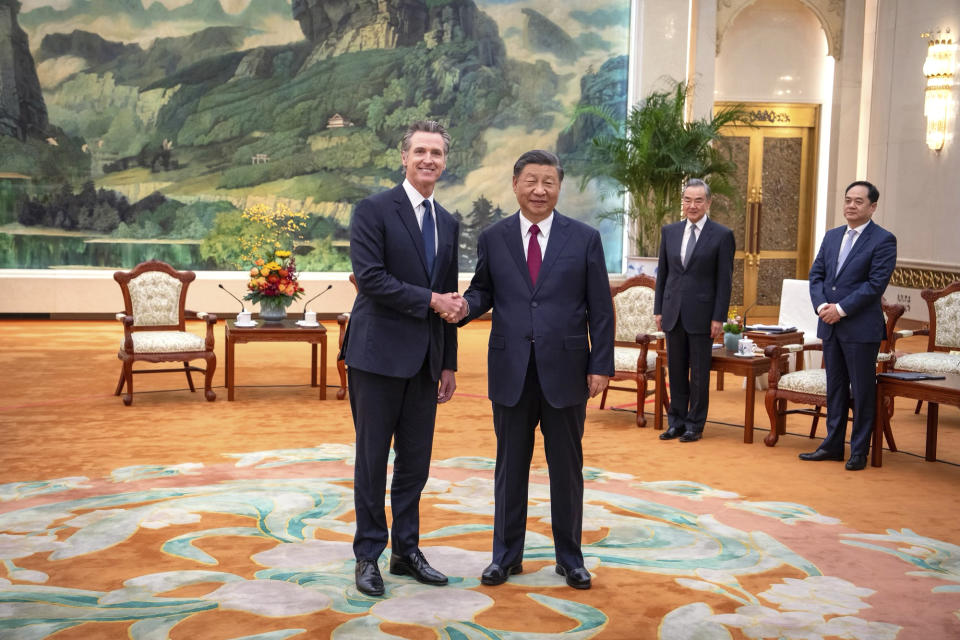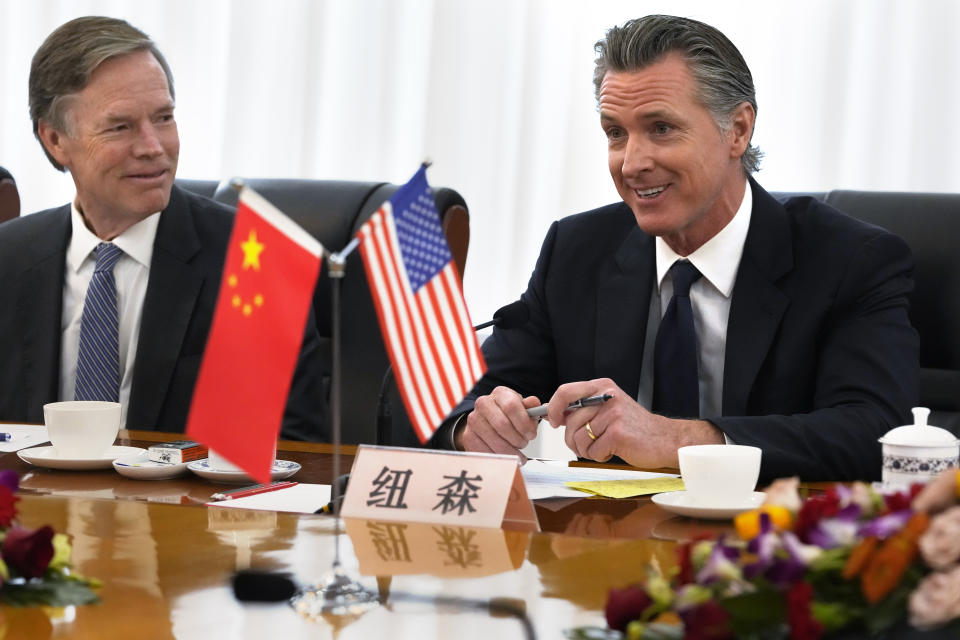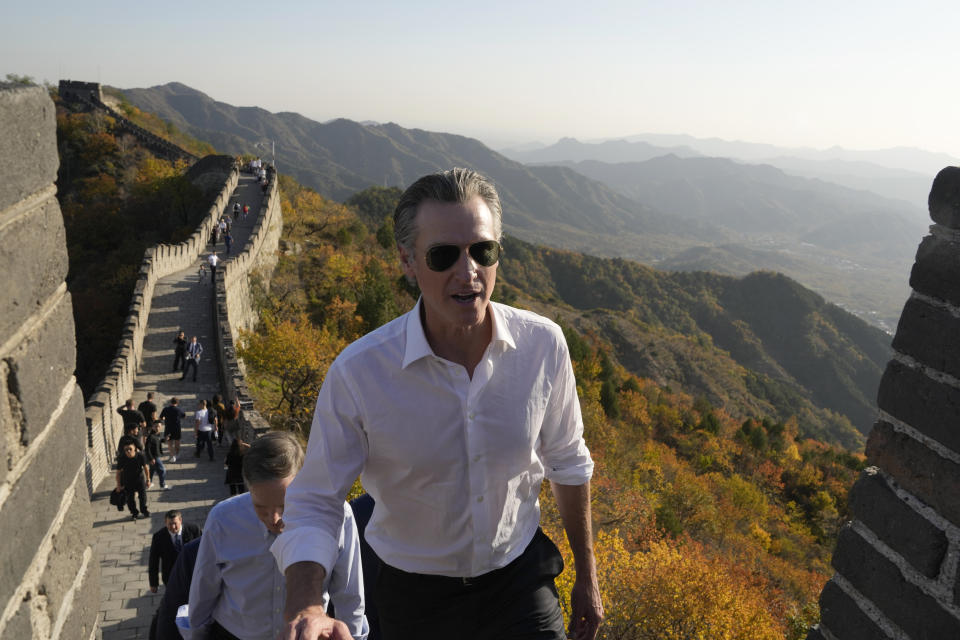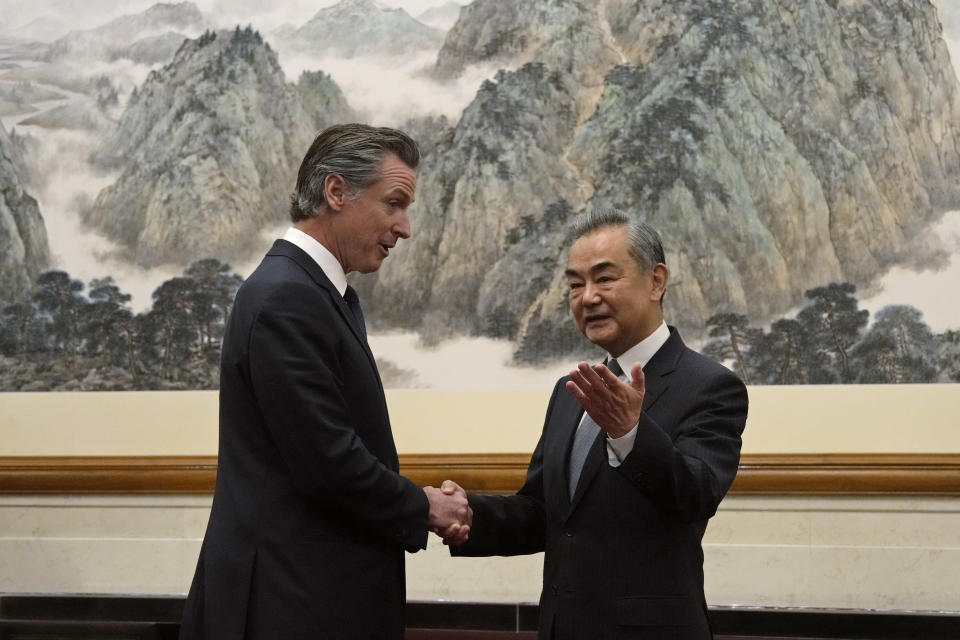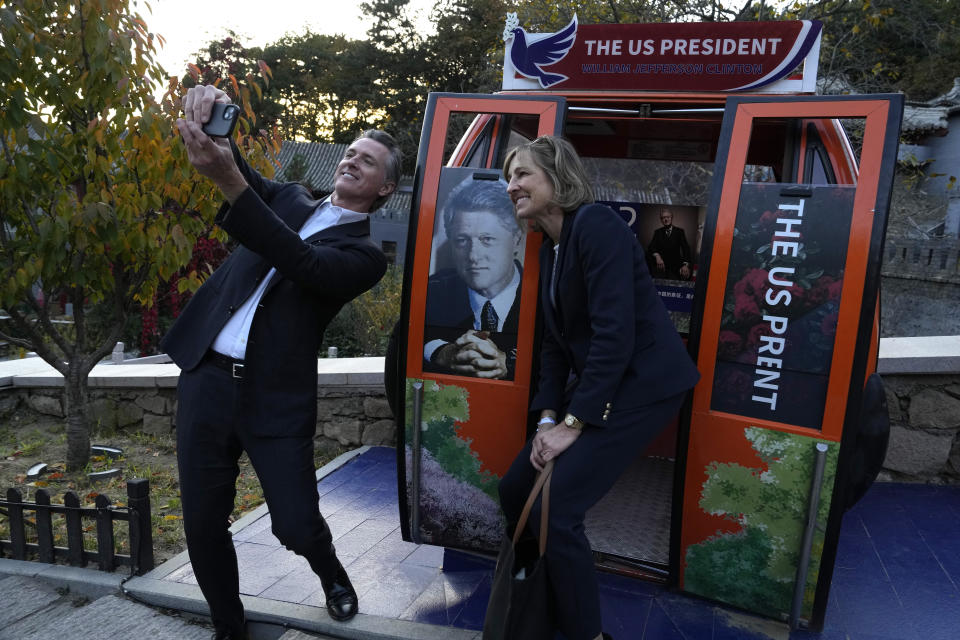BANGKOK (AP) — California Gov. Gavin Newsom’s trip to China, with the stated goal of working together to fight climate change, resulted in a surprise meeting with leader Xi Jinping and was filled with warm words and friendliness not seen in years in the China-U.S. relationship.
The trip was seen as one of the steps in paving the way for U.S. President Joe Biden and Xi to meet in San Francisco in November during the Asia-Pacific Economic Cooperation summit, but it also highlighted the existing relationship that China has with California, showing that even when tensions are high between the two countries, collaboration is still possible on some levels.
The reception from China “sends a very clear signal that working with California is desired and, at minimum, politically safe and encouraged,” said Alex Wang, a professor of law at UCLA who focuses on the environment.
U.S.-China relations have deteriorated significantly since 2018 over issues as wide-ranging as trade, the origin of COVID-19 and the national security crackdown in Hong Kong. That is true both for the two countries at the national level, and for state-level engagement.
States' involvement with China has fallen off rapidly in the past five years, as the bilateral relationship deteriorated under the Trump administration and further soured with the pandemic, according to research from Kyle Jaros, a professor of global affairs at University of Notre Dame.
Yet, that engagement is what China wants, he said, as it views U.S. states as pragmatic partners in business without having to wade into politics.
California has a steady and long working relationship with China.
Arnold Schwarzenegger, a Republican governor, started the formal relationship with China over climate cooperation a decade ago, Jaros said. His successor, the Democrat Jerry Brown, continued the relationship even as the U.S. started turning away from China during the Trump administration. At one point, the California government even had a staffer based in China.
The state is also home to the biggest population of Chinese-Americans nationally, sharing historical and cultural ties.
“It’s a long-standing, deep relationship where many people have met,” said Wang, who is also the co-director at UCLA’s Emmett Institute on Climate Change and the Environment.
Much of the cooperation on climate is on technical information-sharing and showing the other side how they did things, said Wang, who has done some of the collaborative work himself. The information shared is often not high-level, but is about the thousands of smaller decisions, “such as how do you finance electric buses, who pays for it, how do you set up the charging infrastructure?”
